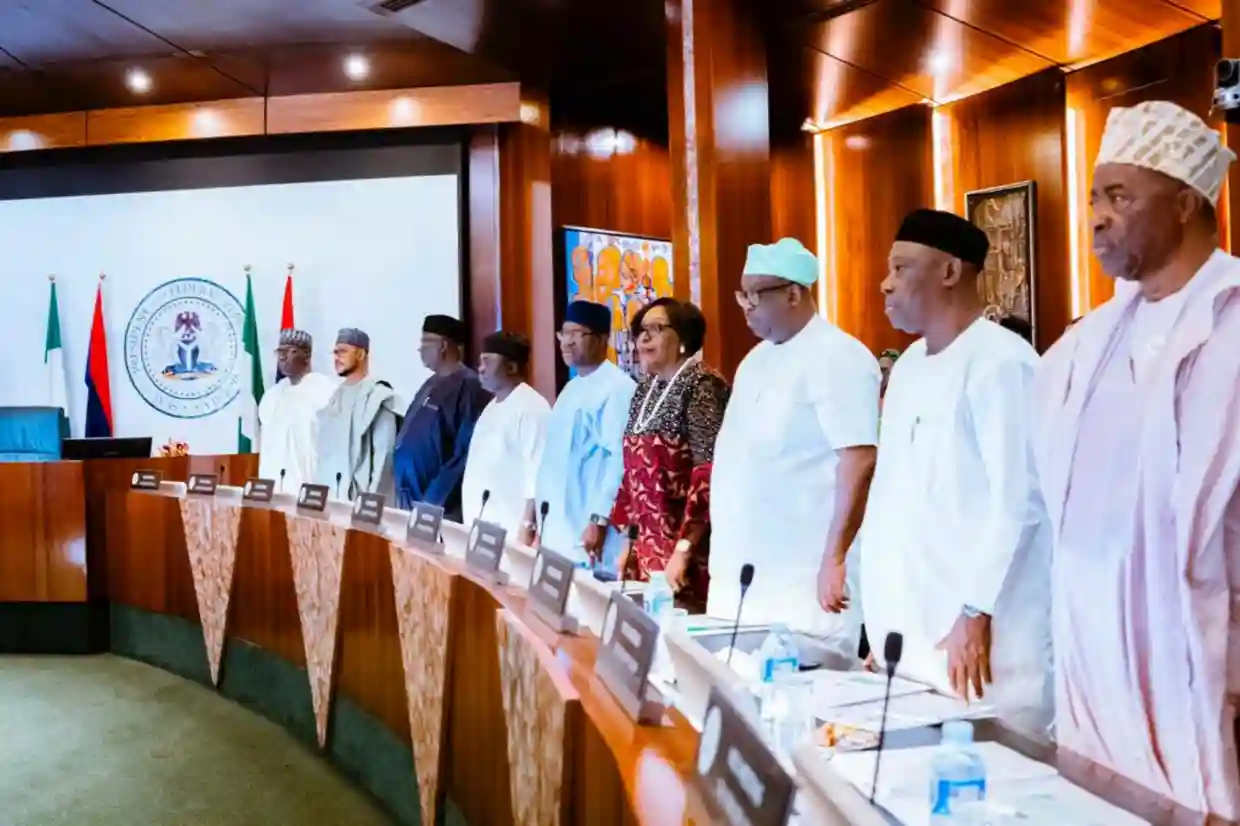The National Economic Council (NEC) has reviewed President Bola Ahmed Tinubu’s vision for Nigeria to achieve a trillion-dollar economy by 2033, describing it as a national ambition that requires strong coordination, clarity, and commitment across the federal, state, and local governments.
The discussion took place at the 152nd NEC meeting held at the Presidential Villa, Abuja, following a detailed presentation by the Minister of Budget and Economic Planning, Senator Abubakar Atiku Bagudu. The minister outlined key strategies and policy pathways for realizing the trillion-dollar goal, emphasizing the need for consistent investments in security, infrastructure, and human capital.
According to Bagudu, achieving such a scale of economic growth demands cooperation among all tiers of government to address challenges affecting productivity and stability. The minister’s presentation highlighted that President Tinubu’s economic vision integrates fiscal reforms, private sector partnerships, and improved resource management to create sustainable national wealth.
Vice President Kashim Shettima, who chaired the meeting, underscored the importance of translating the optimism of citizens into measurable prosperity in homes and communities. He told state governors that the true test of governance lies not in policy declarations but in the tangible improvement of citizens’ lives.
“The measure of government is not in speeches delivered; it is in the lives improved,” the Vice President said. He called on governors to align state-level economic policies with the federal government’s reform agenda to ensure collective progress.
Shettima explained that the trillion-dollar economy vision represents more than a financial target. He said it reflects Nigeria’s determination to build resilience, create jobs, and strengthen its position as Africa’s largest economy through innovation, macroeconomic stability, and inclusiveness.
“This ambition requires coordination across the federation. It is our duty as a Council to interrogate the pathways, to assign responsibilities, and to ensure that our targets are realistic, time-bound, and transparent to the citizens who expect results,” he stated.
He added that the roadmap aligns with President Tinubu’s Renewed Hope Agenda, which prioritises job creation, food security, subnational competitiveness, and economic diversification as the anchors of sustainable growth.
The Vice President also pointed out that the Council’s discussions extended beyond economic indicators to the structural reforms needed to make Nigeria’s economy more productive. He said deliberate planning, transparent governance, and accountability at all levels remain key to achieving the trillion-dollar benchmark within the projected timeline.
NEC members commended the presentation and reiterated their commitment to supporting the federal government’s economic vision. They agreed that the pursuit of a trillion-dollar economy would not only strengthen Nigeria’s global competitiveness but also expand opportunities for citizens in key sectors such as manufacturing, technology, energy, and agriculture.
The Council further resolved to integrate state-level economic plans with national objectives and ensure that each region contributes effectively to Nigeria’s overall economic transformation.

